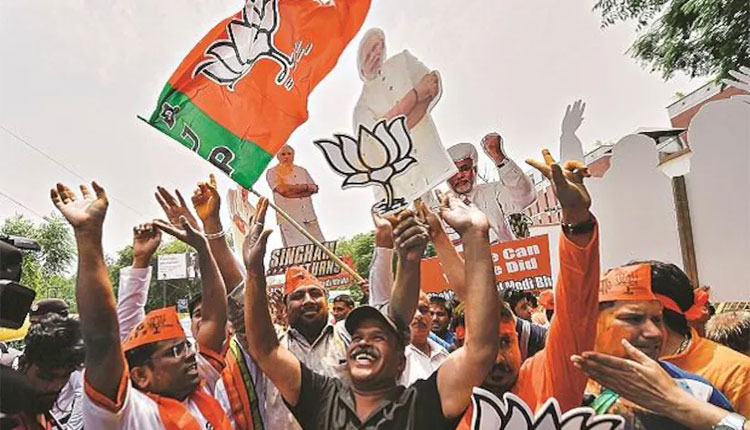New Delhi: The Election Commission has set the stage for the Haryana Assembly elections, with the state heading to the polls on 1 October. The results will be declared on 4 October, alongside those for Jammu and Kashmir. After a decade in power, the Bharatiya Janata Party (BJP) faces significant headwinds, with anti-incumbency, farmer dissatisfaction, and youth unrest over the Agniveer scheme forming key obstacles.
The Congress, buoyed by their recent performance in the Lok Sabha elections, is confident of reclaiming power and has already outlined an ambitious plan to do so. But how do the two major parties intend to win over voters?
The BJP is banking on its achievements over the past 10 years while addressing anti-incumbency by naming Nayab Singh Saini, an OBC leader, as their Chief Ministerial candidate. Despite this move, the party recently suffered a setback in the Lok Sabha polls, securing only 5 out of 10 seats. Back in 2014, the BJP swept to power with 46 seats. In 2019, however, their fortunes shifted slightly when Dushyant Chautala, grandson of OP Chautala, split from the Indian National Lok Dal (INLD) to form the Jannayak Janata Party (JJP). The JJP contested 40 seats and won 10, becoming a key player in forming the state government.
One of the BJP’s biggest hurdles remains the Jat community, who have largely turned against the party. Jats, predominantly farmers and soldiers, have expressed their discontent, leading to the BJP failing to secure a single Jat-dominated seat in the recent Lok Sabha elections. However, the potential division of Jat votes among the JJP and INLD may play in the BJP’s favour, weakening the Congress’s prospects.
In a bid to manage voter dissatisfaction, the Saini government recently added 10 more crops to the minimum support price (MSP) list. Damage control is underway as the BJP tries to shore up its base ahead of the elections.
Meanwhile, the Congress has launched an aggressive campaign titled Haryana Mange Hisab (Haryana Demands Accountability) since 15 July. Former Chief Minister Bhupinder Singh Hooda has promised a raft of welfare measures if elected, including a monthly pension of ₹6,000 for the elderly, 300 units of free electricity for every household, and LPG cylinders at ₹500 for women.
As the election date draws closer, the BJP and Congress are locked in a high-stakes battle to secure votes in a deeply divided state. The outcome will likely hinge on which party can best navigate the complex web of local grievances and regional dynamics.



Comments are closed.